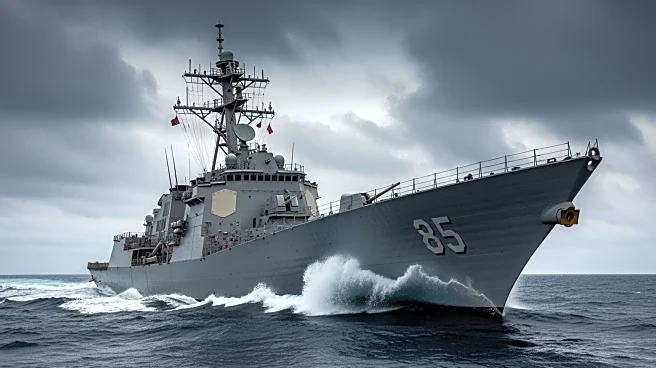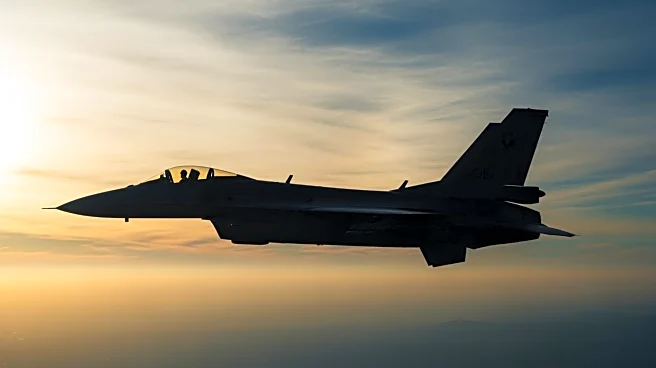What's Happening?
The Trump administration has ordered the deployment of the Gerald R. Ford Carrier Strike Group to the U.S. Southern Command area of responsibility in the Western Hemisphere. This move is part of a broader
strategy to target suspected drug-smuggling vessels in the Caribbean. The deployment aims to enhance U.S. capabilities to detect, monitor, and disrupt illicit activities that threaten the safety and prosperity of the United States. The initiative is in line with President Trump's directive to dismantle Transnational Criminal Organizations (TCOs) and counter narco-terrorism. Recently, a strike on a vessel operated by members of the Tren de Aragua, a designated terrorist organization, resulted in the death of six alleged narco-terrorists.
Why It's Important?
The deployment of the Ford Carrier Strike Group underscores the U.S. government's commitment to combating drug trafficking and narco-terrorism in the Western Hemisphere. This action is significant as it aims to disrupt the operations of drug cartels that pose a threat to U.S. national security and regional stability. By enhancing its military presence, the U.S. seeks to deter illicit activities and protect its borders from the influx of illegal drugs. The move also highlights the administration's focus on strengthening homeland security and addressing transnational threats.
What's Next?
The increased military presence in the Caribbean is expected to lead to more operations targeting drug-smuggling vessels and TCOs. The U.S. government may continue to collaborate with regional partners to enhance intelligence sharing and joint operations. The deployment could prompt reactions from countries in the region, potentially leading to diplomatic discussions on security cooperation. The effectiveness of these efforts will likely be monitored closely by both U.S. officials and international observers.









